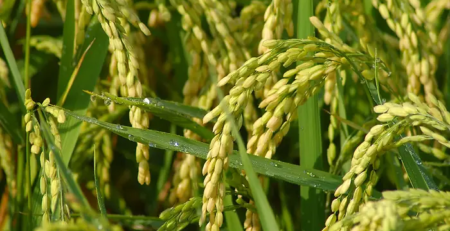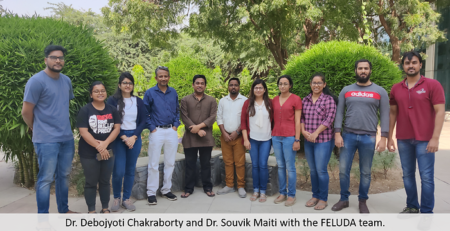The novel Coronavirus (COVID-19) has affected almost every country in the world and India is no exception. To control the spread, the Indian government initially imposed a mandatory countrywide lockdown for 21 days, which has now been extended. TIGS in the NCBS campus also had to follow all the directives issued by the Government. To deal with this challenge, the Senior Leadership of TIGS quickly decided to stop and freeze any experiments that were being conducted and a COVID emergency response team was created through voluntary participation to ensure that live cultures of mosquitoes, flies and plants were maintained. Additionally, the cold storages where plasmids, cell lines and collected specimens were stored for revival, as conditions improve, were monitored regularly during this lockdown period. In spite of all odds the emergency response team consisting of Naveen Kumar, Shyam Sura, Divij, Leena, Deepak, Ayanthi, Nirmal, Khusboo, Surendiran, Mandar, Chaitali, Vidyasagar, Soumya, Girish and JoyDeep Roy did a brave job by venturing out and providing outstanding support to the emergency work that was required. All of us from TIGS are highly thankful to them and gratefully acknowledge their contributions. With all these efforts, we are staying strong and believe that we will continue to partner with the community in combating healthcare and agriculture related issues.
14Apr
Related Posts

24Sep
On the path to global food security
Our success story began with agriculture. Organized farming enabled us to feed... read more

06May
Test! Test! Test!
By Hemalatha Rao, Varun Chopra, Sonia Sen Illustrations by Hemalatha Rao As we sit... read more

16Nov
Moment of Truth: Safer Food Needed to Prevent the Apocalypse of Antibiotic Resistance in India
By Dr. Jyoti Joshi Head-South Asia, Center for Disease Dynamics, Economics & Policy... read more

03Jan
Sonia Sen talks about how her exposure to nature led her to study the brains of flies and mosquitoes
Sonia’s group at TIGS studies the development and the evolution of the... read more

15Mar
The Making of CSIR-IGIB’s FELUDA
By Dr. Poorti Kathpalia, Science Communicator, with contributions from Dr. Debojyoti Chakraborty... read more

21Jun
Biofilms: Beauties to See, Beasts to Treat
By Dr. Karishma S. Kaushik, MBBS, MD, PhD Savitribai Phule Pune University, Pune,... read more

21Apr
The way to a vaccine
By Ashwathi V, Anirudha LakshminarasimhanSince December 2019, scientists all over the world... read more




